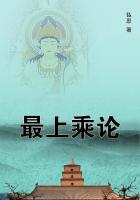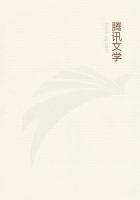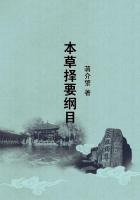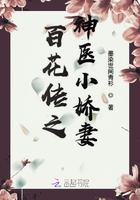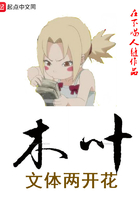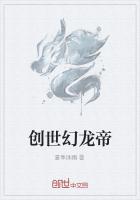He was,so far as one could judge by the feeble rays of the lamp,a man of about sixty,of middle height,and apparently ailing and broken.His face,although the features were sufficiently commonplace,had something commanding and severe;his eye glittered under the deep arch of his brow like a beacon-light far down a cavern;and under the cap,pulled down almost to his nose,one divined instinctively the broad forehead of a genius.
He took upon himself to answer the archdeacon's inquiry.
'Reverend sir,'said he in grave tones,'your fame has reached me,and I was desirous of consulting you.I am but a poor gentleman from the provinces who takes the shoes off his feet before entering the presence of the learned.I must acquaint you with my name:they call me Compère2 Tourangeau.'
'Singular name for a gentleman,'thought the Archdeacon.Nevertheless,he felt himself in the presence of something powerful and commanding.The instinct of his high intelligence led him to suspect one no less high beneath the fur-trimmed cap of Compère Tourangeau;and as he scrutinized that quiet figure,the sneering smile that twitched round the corners of his morose mouth as he talked to Coictier faded slowly away,like the sunset glow from an evening sky.
He had seated himself again,gloomy and silent,in his great arm-chair,his elbow had resumed its accustomed place on the table,his head leaning on his hand.
After a few moments of deep reflection,he signed to his two visitors to be seated,and then addressed himself to Compère Tourangeau.
'You came to consult me,sir,and on what subject?'
'Your Reverence,'answered Tourangeau,'I am sick,very sick.Rumour says you are a grea culapius,and I am come to ask your advice as to a remedy.'
'A remedy!'exclaimed the Archdeacon,shaking his head.He seemed to consider for a moment,and then resumed:'Compère Tourangeau—since that is your name—turn your head.You will find my answer written on the wall.'
Tourangeau did as he was bid,and read the following inion on the wall,above his head:'Medicine is the daughter of dreams.—Iamblichus.'
Doctor Jacques Coictier had listened to his companion's question with a vexation which Dom Claude's answer only served to increase.He now leaned over to Tourangeau and whispered,too low for the Archdeacon's ear:'Did I not warn you that he was a crack-brained fool?You were set upon seeing him.'
'But it might very well be that he is right in his opinion,this madman,Doctor Jacques,'returned his friend in the same tone,and with a bitter smile.
'Just as you please,'answered Coictier dryly.'You are very quick in your decision,Dom Claude,and Hippocrates apparently presents no more difficulties to you than a nut to a monkey.Medicine a dream!I doubt if the apothecaries and doctors,were they here,could refrain from stoning you.So you deny the influence of philters on the blood,of unguents on the flesh?You deny the existence of that eternal pharmacy of flowers and metals which we call the World,created expressly for the benefit of that eternal invalid we call Man!'
'I deny the existence,'answered Dom Claude coldly,'neither of the pharmacy nor the invalid.I deny that of the physician.'
'Then,I presume it is not true,'Coictier went on with rising heat,'that gout is an internal eruption;that a shot-wound may be healed by the outward application of a roasted mouse;that young blood,injected in suitable quantities,will restore youth to aged veins;it is not true that two and two make four,and that emprosthotonos follows upon opisthotonos?'
'There are certain matters about which I think in a certain way,'the Archdeacon replied unmoved.
Coictier flushed an angry red.
'Come,come,my good Coictier,do not let us get angry,'said Compère Tourangeau,'the reverend Archdeacon is our host.'
Coictier calmed down,but growled to himself:'He's a madman,for all that.'
'Pasque Dieu!'resumed Tourangeau,after a short silence;'you put me in a very embarrassing position,M re Claude.I looked to obtaining two opinions from you,one as to my health,the other as to my star.'
'Monsieur,'returned the Archdeacon,'if that is your idea,you would have done better not to waste your health in mounting my stairs.I do not believe in medicine,and I do not believe in astrology.'
'Is that so?'exclaimed the good man in surprise.
Coictier burst into a forced laugh.
'You must admit now that he's mad,'he said in low tones to Tourangeau;'he does not believe in astrology.'
'How can any one possibly believe,'continued Dom Claude,'that every ray of a star is a thread attached to a man's head?'
'And what do you believe in then?'cried Tourangeau.
The Archdeacon hesitated for a moment,then,with a sombre smile which seemed to give the lie to his words,he answered,'Credo in Deum.'
'Dominum nostrum,'added Tourangeau,****** the sign of the cross.
'Amen,'said Coictier.
'Reverend sir,'resumed Tourangeau,'I am charmed to my soul to find you so firm in the faith.But,erudite scholar that you are,have you reached the point of no longer believing in science?'
'No!'cried the Archdeacon,grasping Tourangeau's arm,while a gleam of enthusiasm flashed in his sunken eye;'no,I do not deny science.I have not crawled so long on my belly with my nails dug in the earth through all the innumerable windings of that dark mine,without perceiving in the far distance—at the end of the dim passage—a light,a flame,a something;the reflection,no doubt,from that dazzling central laboratory in which the patient and the wise have come upon God.'
'And finally,'interrupted Tourangeau,'what do you hold for true and certain?'
'Alchemy!'
Coictier exclaimed aloud,'Pardieu,Dom Claude,there is doubtless much truth in alchemy,but why blaspheme against medicine and astrology?'
'Null is your science of man,your science of the heavens null,'said the Archdeacon imperiously.
'But that's dealing hardly with Epidaurus and Chaldea,'returned the physician with a sneering laugh.

